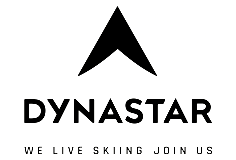I have started from the feet up then gone onto Hardwear. The secret to alpine clothing is versatility as a standard day starts pre- dawn in the cold and finishes in the heat of the day.
I can lend you anything with a *
- Rock Boots: Depends on the planned week. (We have a limited selection of sizes available for
loan) - Mountain Boots:Stiff leather boots are better all round. La Sportiva Nepal Extremes style boots are great. Make sure they have been used a lot and are comfortable before the trip. The boots should be B2 rated as a minimum but B3 is better.
- Gaiters: I prefer short ones for Alpine summer use as you are rarely in deep snow.
- Trousers: Soft shell type stretch fabric is best. Fleece is too warm. No cotton.
- Waterproof over trousers: I go light, anything made from Paclite is great but heavier stuff will
work just as well. - Thermal top: Light colours are best as they reflect the sun.
- A soft shell jacket plus an extra insulating layer like a Haglofs Barrier vest or jacket is excellent with a waterproof outer layer in the sac is perfect for the summer. A light down jacket is a good idea for high mountain trips like Mont Blanc at the beginning and end of the season.
- Waterproof top: Again as light as possible Gore Paclite is the best on the market but any breathable waterproof top will work. The Haglofs LIM Jacket is fantastic.
- Gloves: A thick pair and a thin pair. Its worth having mitts for Mont Blanc and high mountain trips.
- Hat: A sun hat and a warm hat that will fit under a helmet.
- Helmet*
- Head torch with a new battery
- Sunglasses
- Ski Goggles
- Sun cream Factor 30+ and Factor 30+ lipsalve.
- Hardware
- Crampons with anti-ball plates -these are essential, as the snow gets soft and sticky in the
heat of the day*
- Harness*
- Prussic loops one short (fore arm length) one longer (A Petzl Micro traction is brilliant is also
useful)
- Belay plate*, crab, a couple of slings and crabs are also useful.
- Ice Tools*, A classic Axe is great for most itineraries 55-60cm if you require technical tools we can lend
them to you. If you are considering rocky routes with snow approaches a light axe like the Grivel
Air Tech Racing saves weight when climbing I can lend these. - Rucksack 35-40 litres should do.
- Water bottle at least 1 litre I bring a flask as well in June and Sept.
- Ski poles can be useful for walk in to huts
- Crampons with anti-ball plates -these are essential, as the snow gets soft and sticky in the
- Other Essentials
- Passport
- Insurance Bring the documents or a copy with you.
- Sheet sleeping bag a requirement in most huts for hygiene purposes


